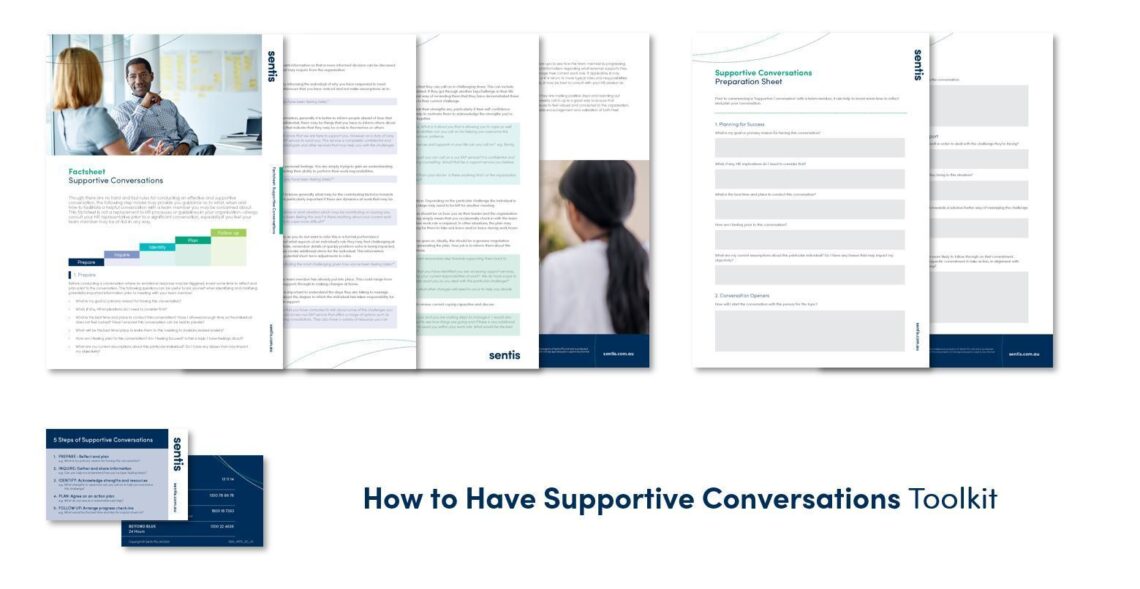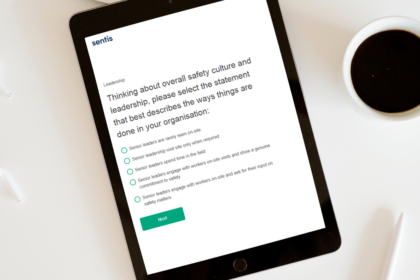At some point in time, everyone will be faced with change, challenges and stress in their lives. While some people manage stressful periods effectively, others may struggle to cope. Signs that someone may be struggling include, but are not limited to:
- increased absenteeism/presenteeism
- increased irritability, confusion or anxiety
- difficulty forming clear thoughts or ongoing unhelpful thoughts
- decreased concentration and/or memory
- decreased work performance
- an avoidance of work commitments and increased defensiveness.
In times like these, there may be an opportunity to have a supportive conversation. The ‘How to Have Supportive Conversations’ toolkit is available to assist you in preparing for a supportive conversation with a member of your team. The downloadable toolkit includes a supportive conversation factsheet, preparation worksheet and a conversation prompt card. This toolkit can also be supplemented with additional resources found on the Sentis YouTube Channel. More information is provided in the toolkit overview.
If at any point in your planning or conversation you feel that the person is at risk to themselves or others, please speak to your HR department and follow the appropriate process for your business.





